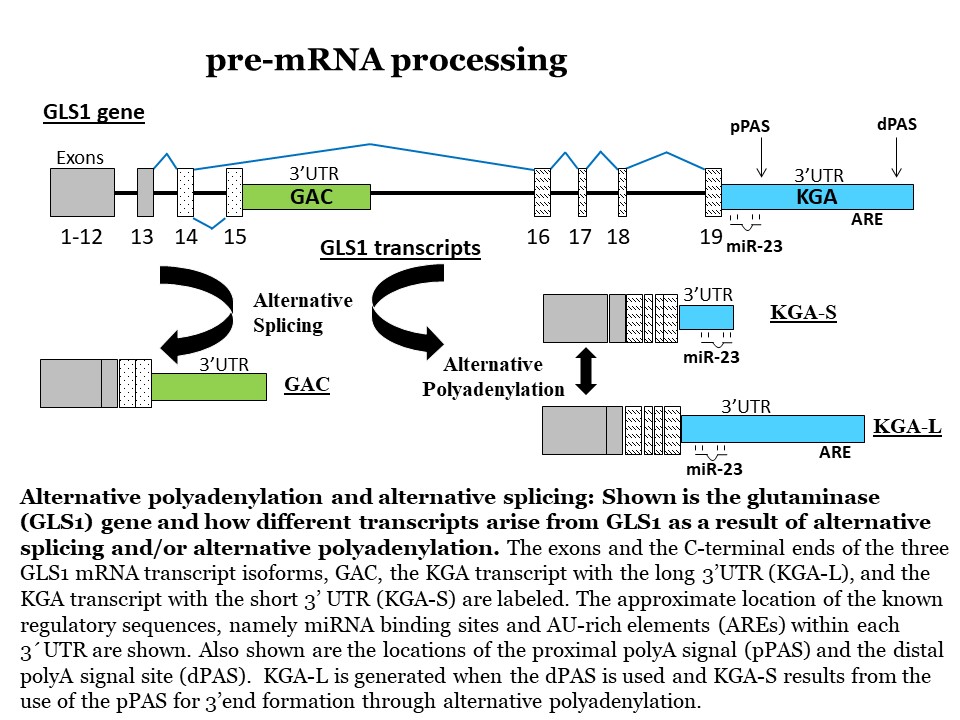- Alternative pre-mRNA processing
In eukaryotes, multiple mRNA transcripts are generated from the same gene through alternative splicing and alternative polyadenylation. This provides the plasticity needed to remodel the same genome for different physiological states. Alternative splicing of different exons from the same pre-mRNA results in mature mRNAs that code for different protein products. Global proteomic profiling suggests that these alternatively spliced isoforms behave more like different proteins than slight variants of each other . The other contributor to transcript diversity, alternative polyadenylation, is an emerging form of gene regulation that occurs in ~70% of human genes. When it occurs together with alternative splicing, it also gives rise to different proteins. However, in its simplest form, alternative polyadenylation involves changes in the 3´untranslated region (3´UTR), while the protein coding region remains unaltered. The resulting alternative transcripts have 3´UTRs that are of different lengths and content. The roles of these different 3´UTRs may include regulating transcript stability, translatability, and subcellular localization . Alternative splicing/polyadenylation can be subverted to give rise to transcripts that support different disease states including cancer . Our long term goal is to identify the underlying biological mechanisms that give rise to different mRNA transcripts and to define the roles of the resulting alternative transcripts in disease. To achieve this we use second and third generation sequencing technologies with bioinformatics to identify potential novel transcripts together with standard molecular biology techniques.

2. Cell death pathways.
The Nomenclature Committee on Cell Death has defined several cell death pathways including necrosis, pyroptosis, apoptosis, iron-dependent ferroptosis and autophagy. Although extensive efforts have been made to induce/restore apoptotic pathways in cancer, it is only recently that attempts have been made to understand the cross-talk between different cell death pathways and exploit them for anticancer therapy. Our goal is to investigate how we can sensitize chemotherapy resistant tumors to cell death as well as induce multiple cell death pathways in cancer.
